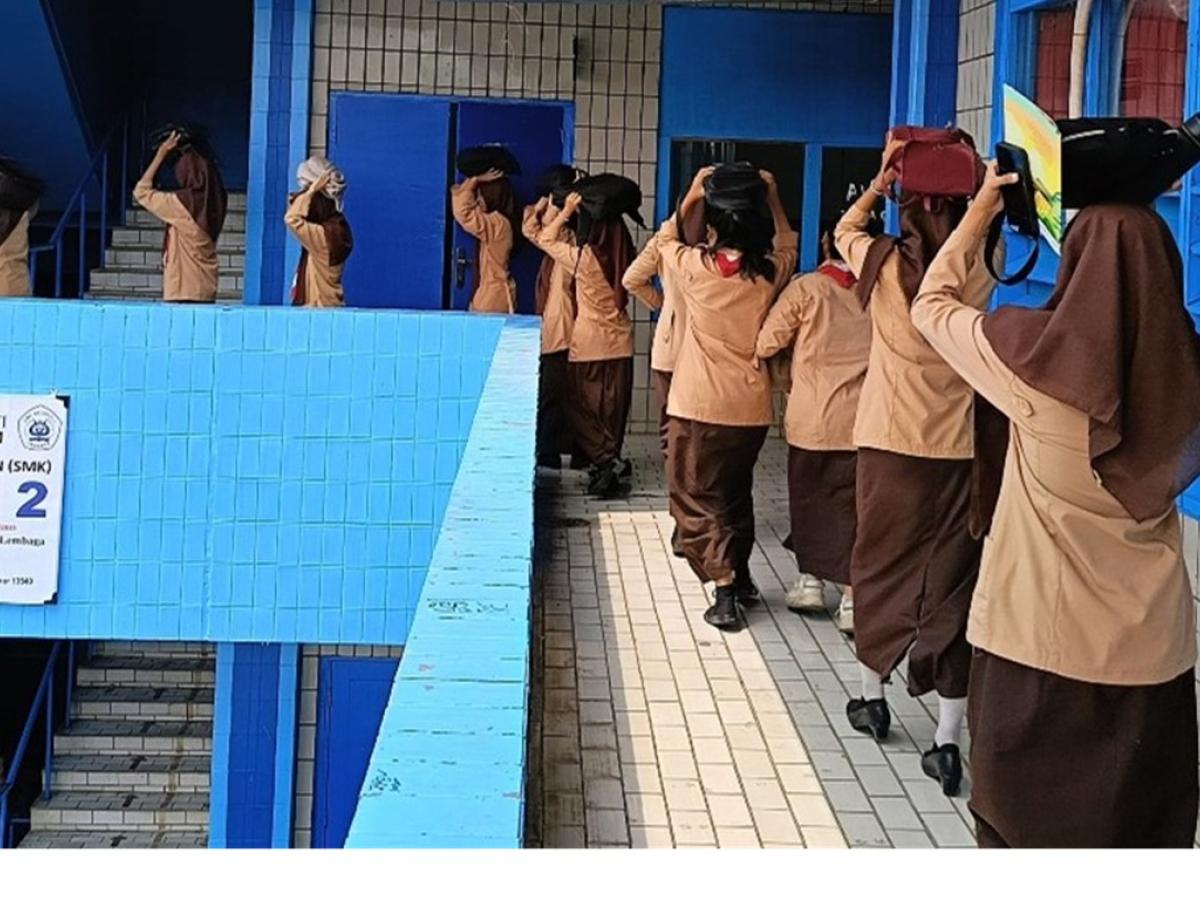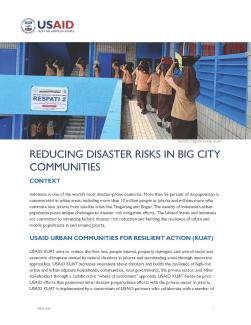CONTEXT
Indonesia is one of the world’s most disaster-prone countries. More than 56 percent of its population is concentrated in urban areas, including more than 10 million people in Jakarta and millions more who commute into Jakarta from satellite cities like Tangerang and Bogor. The density of Indonesia’s urban population poses unique challenges to disaster risk mitigation efforts. The United States and Indonesia are committed to advancing holistic disaster risk reduction and building the resilience of urban and mobile populations in and around Jakarta.
USAID URBAN COMMUNITIES FOR RESILIENT ACTION (KUAT)
USAID KUAT aims to reduce the lives lost, people injured, property damaged, and overall social and economic disruption caused by natural disasters in Jakarta and surrounding areas through innovative approaches. USAID KUAT increases awareness about disasters and builds the resilience of high-risk urban and urban-adjacent households, communities, local governments, the private sector, and other stakeholders through a collaborative “whole of settlement” approach. USAID KUAT builds on prior USAID efforts that pioneered initial disaster preparedness efforts with the private sector in Jakarta. USAID KUAT is implemented by a consortium of USAID partners who collaborate with a number of national and sub-national Indonesian government bodies.
KEY RESULTS
USAID KUAT aims to reduce the impact of natural disasters in Jakarta and nearby districts. Since 2023, USAID KUAT has:
- Collaborated with the Jakarta Disaster Management Office to host a series of workshops with the national agencies responsible for earthquake messaging to develop materials to raise awareness and mitigate risk in complex urban areas;
- Raised public awareness of natural disasters through competitions about urban earthquake video script writing and Instagram reels, developing and distributing three picture books, and attracting media coverage;
- Organized an expedition for experts and journalists to the Baribis Fault, which is a threat to the Jakarta metropolitan area, resulting in educational videos that have been viewed more than one million times;
- Reached over 20,000 junior and senior high school students across 96 schools with information about earthquakes, class drills, and full school evacuations, and trained 48 “Safe School” facilitators to continue the initiative long-term;
- Developed Jakarta-specific earthquake-resistant retrofitting guidelines and training courses for safer building construction based on vulnerability assessments of 200 buildings and 24 secondary schools;
- Developed and field tested an approach for earthquake preparedness and safety targeting youth living with disabilities and their caregivers;
- Supported the Indonesia Chamber of Commerce to develop a business continuity planning process for micro and small businesses, which account for 90 percent of the Indonesian workforce, so they can continue operating following a disaster;
- Established, trained, and mentored 28 village savings and loans groups for families with special needs, almost a third of whom own micro-businesses; and
- Worked with community leaders and village savings and loans groups to demonstrate community-led disaster risk management in Jakarta and the districts of Bogor and Tangerang.
CONTACT
Munkhzaya Badarch, USAID at mbadarch@usaid.gov
Bill Marsden, M.Sc at bmarsden@miyamotointernational.com


